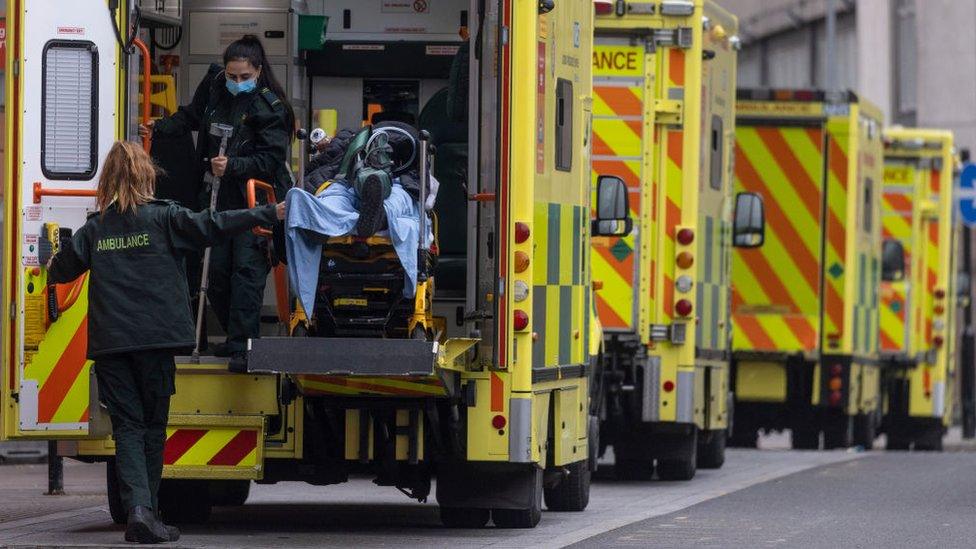Retrieve patient transport scheme has 'changed critical care forever'
- Published
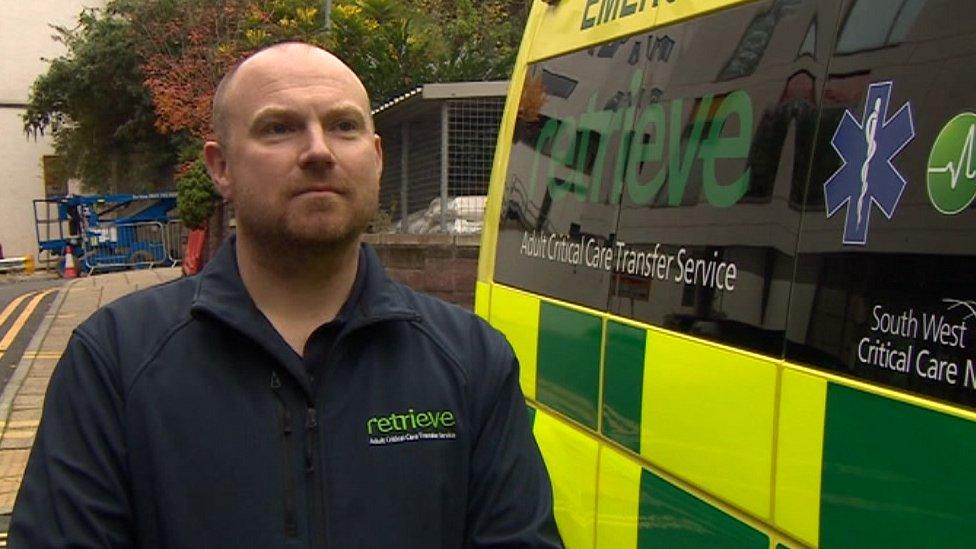
Dr Scott Grier said Retrieve was a "positive legacy of the pandemic" and was "very much here to stay"
A specialist service to transport critically ill and injured patients is being copied around England after the success of a trial in the South West.
More than 700 patients have been transported since the pilot scheme began a year ago.
Retrieve was set-up to transport the most seriously ill patients between intensive care units to take pressure off ambulance and hospital staff.
Six other regions around England are now developing a similar service.
"Everyone will have a service that looks similar to Retrieve by the end of next year which is amazing in the short period of time that we've been talking about it," said Dr Scott Grier, lead consultant for Retrieve.
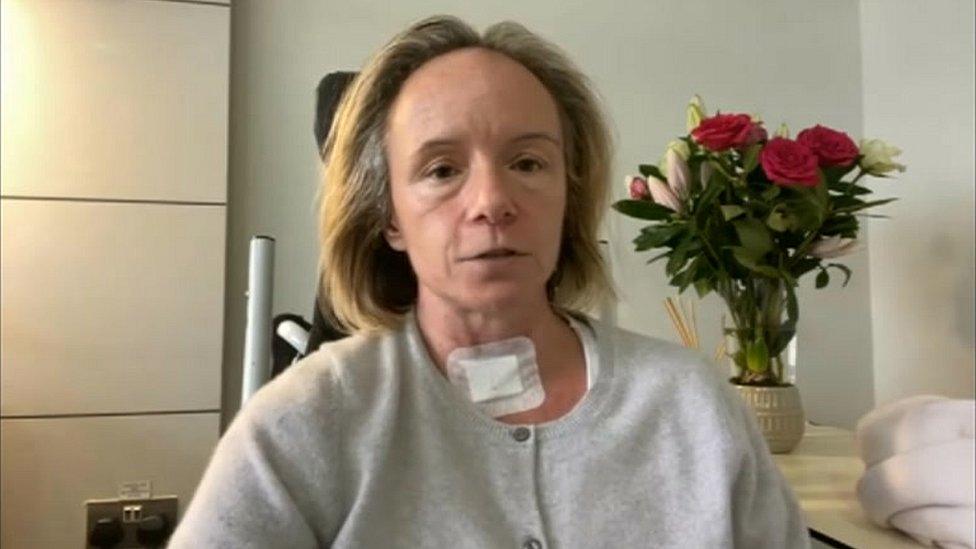
Kate Playfair was left paralysed from the waist down after a fall at her home in Condicote, Gloucestershire, in October
Dr Grier said critically unwell patients need to be transported between hospitals for various reasons, though frequently to be treated in a hospital specialising in the care they require.
The service, which operates in Bristol, Gloucestershire, Wiltshire, Somerset, Devon and Cornwall, is funded by NHS England and Improvement South West and costs £3.2m a year.
"It sounds expensive but it's an efficient service and every time we make a transfer we save the hospital and staff time and those hospitals can care for other people while we care for their patients on the move.
"It's incredibly exciting because we have changed this area of critical care forever," added Dr Grier.
Kate Playfair, from Condicote in Gloucestershire, was transported by the service after breaking her neck in a fall in her garden on 7 October.
Following an operation to relieve pressure on her spinal cord, she spent more than two weeks in intensive care in Bristol's Southmead Hospital and was then taken to Cheltenham General Hospital where she spent a further three weeks in intensive care.
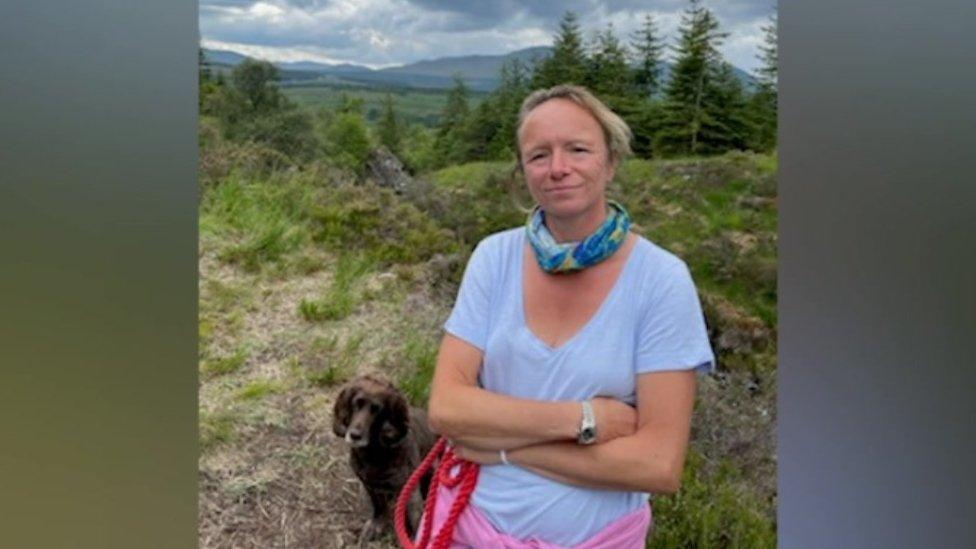
Ms Playfair is undergoing physiotherapy and is hopeful of recovering the feeling in her legs
"It was very smooth. I had two wonderful chaps looking after me," she said.
"I had a neck injury so it was important to keep me stable and unlike any other ambulance rides it was so smooth and when I got to Cheltenham they were very good at handing me over."
Ms Playfair is undergoing physiotherapy and said: "I'm making slow progress but I'm doing well.
"I might be able to get feeling back but it can take up to a year as the spinal cord is still recovering.
"Time will tell."
Peter Wilson, medical director (commissioning) for NHS England and NHS Improvement South West, said Retrieve had made a big impact since it was launched.
"It enables critically-ill patients to receive dedicated consultant and senior nurse-led transfer care between hospitals and frees up frontline hospital and ambulance staff to care for other patients.
"The service has received positive feedback from patients, their families and medical staff and has transformed this important area of care for the better in a remarkably short space of time."

Follow BBC West on Facebook, external, Twitter, external and Instagram, external. Send your story ideas to: bristol@bbc.co.uk , external
- Published4 January 2022
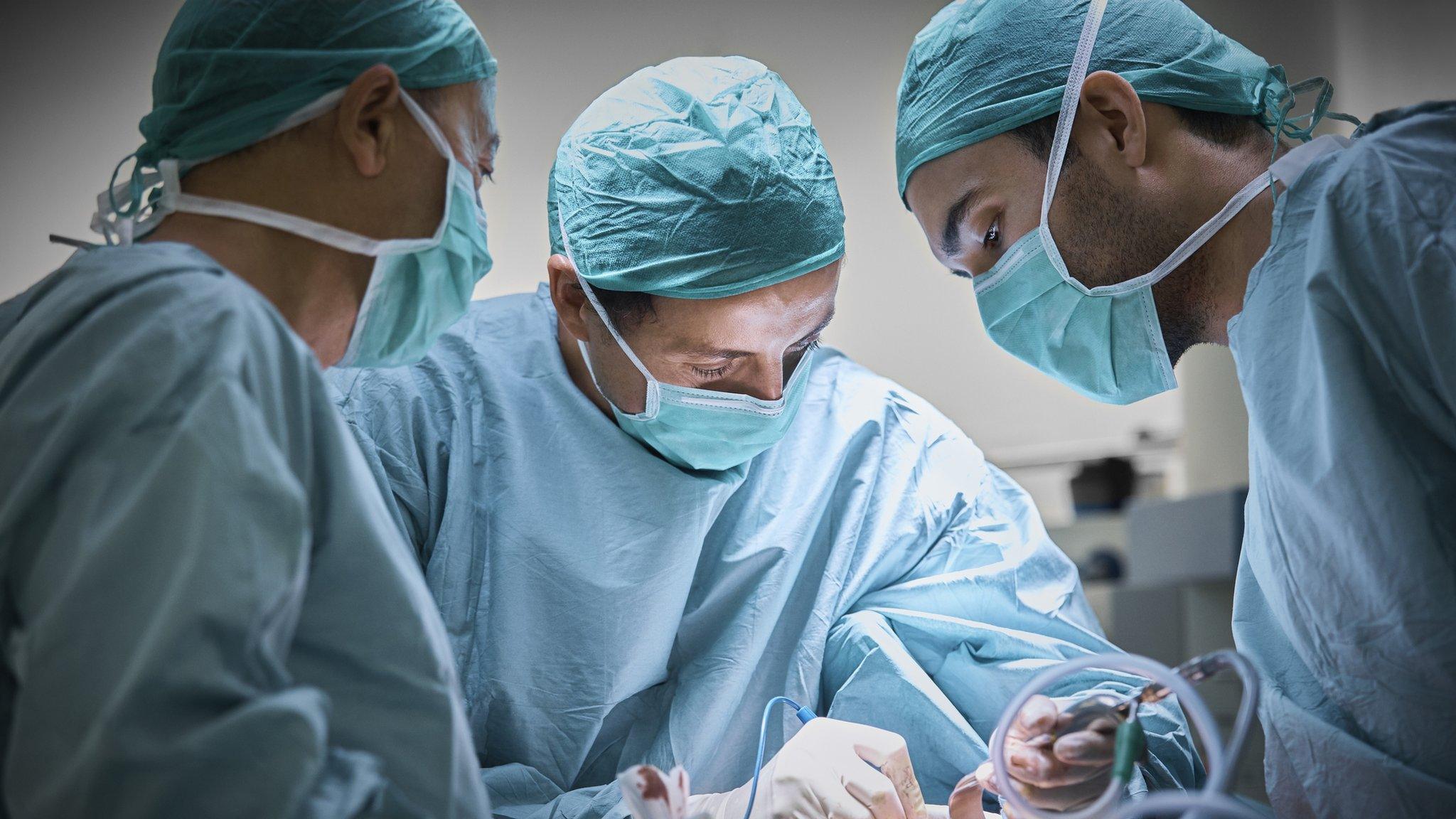
- Published9 December 2021

- Published1 January 2022
